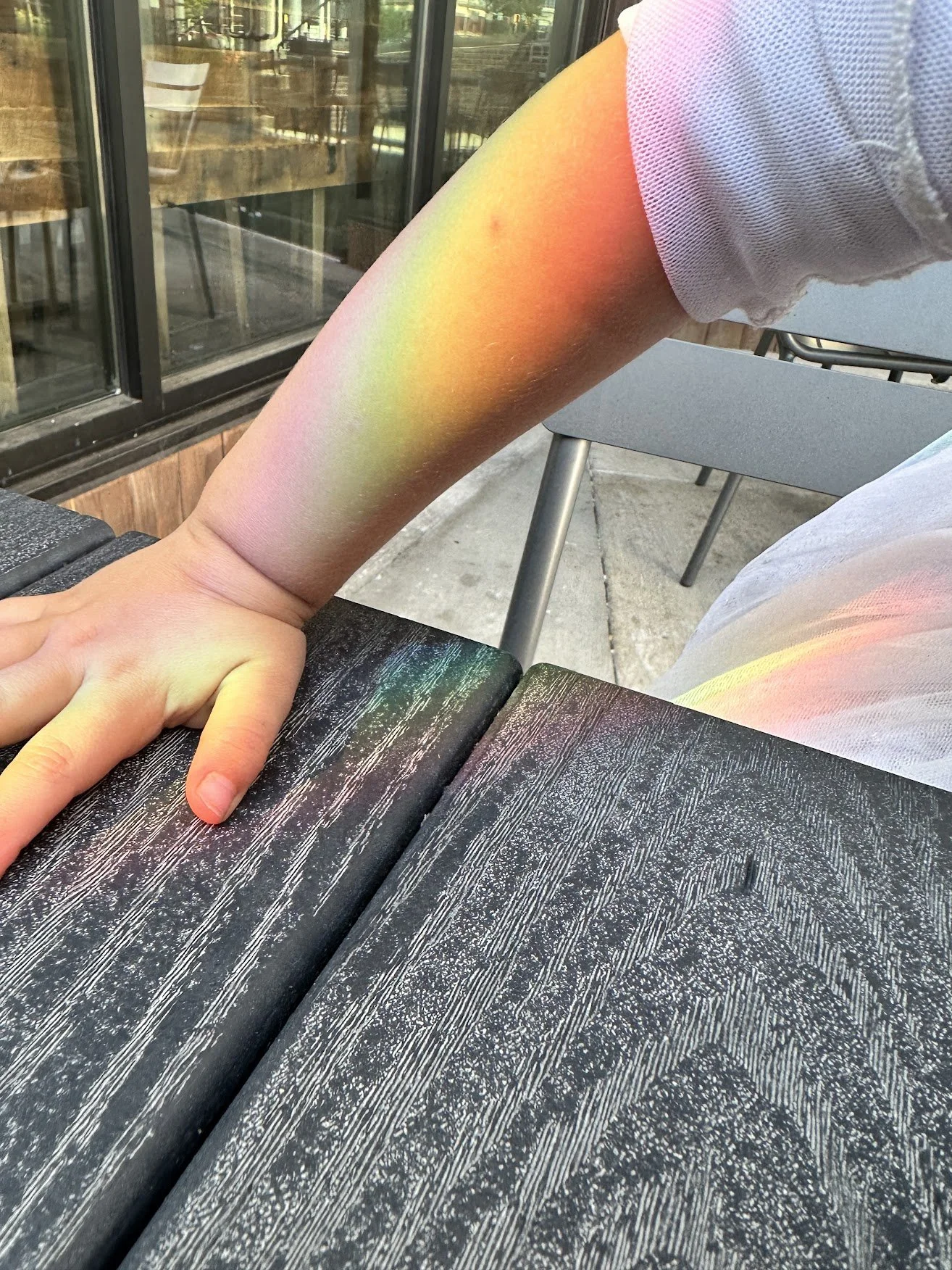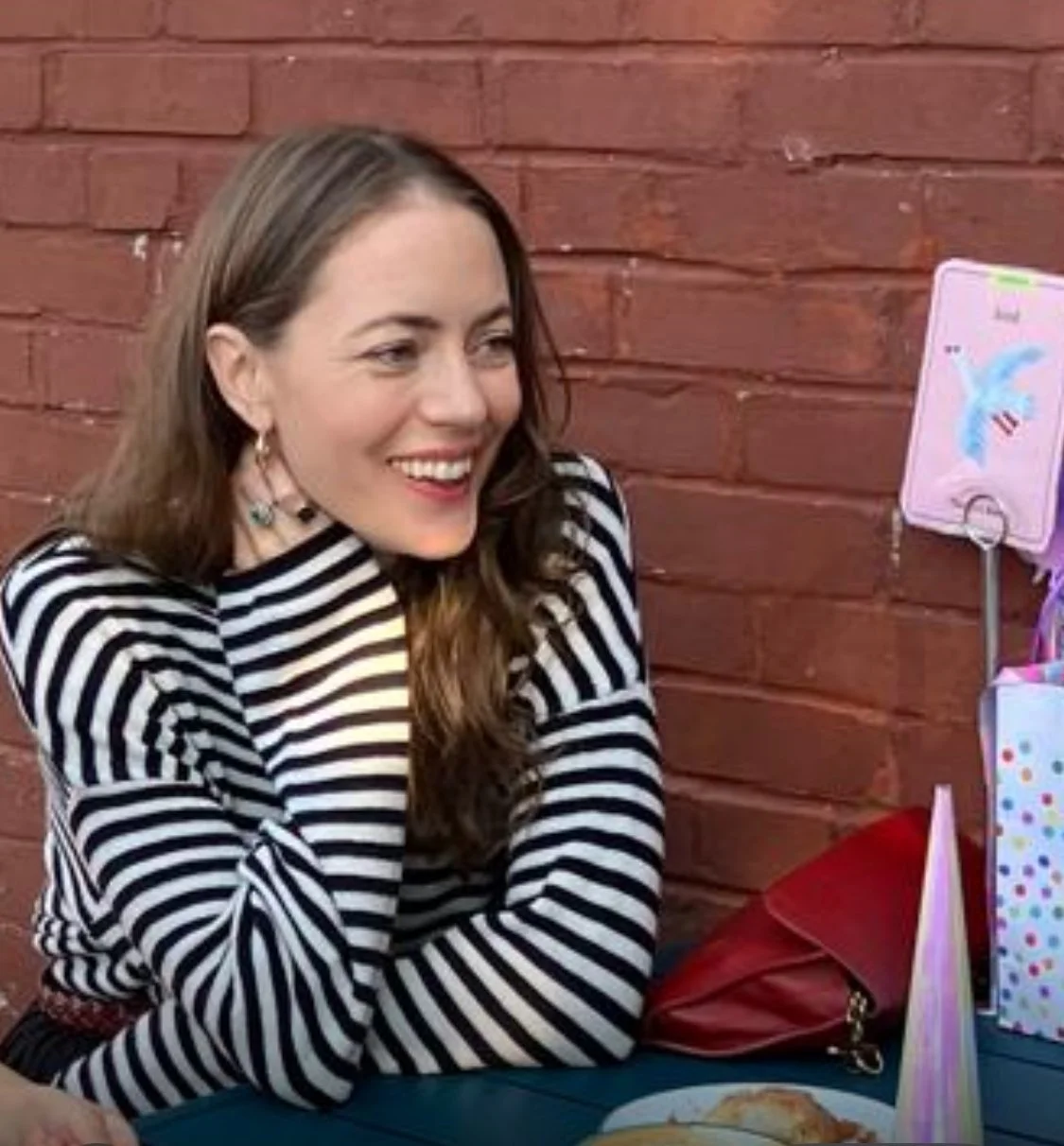MÈRE Stories: Kendra Koch
I didn't think getting unexpectedly diagnosed with ADHD and C-PTSD would be on my pregnancy bingo card, but it was.
Even though I had a degree in psychology, a decade-long career in the wellness industry, and experience working in Special Education, I had never once heard anyone talk about ADHD in adults—let alone women.
So I didn't take the news very seriously.
That is, until postpartum broke me.
My symptoms went from barely noticeable to completely unmanageable.
The strategies I'd relied on before—routine, sleep, healthy eating, daily meditation, and lots of exercise—were no longer available to me due to the demands of motherhood.
My changing hormones and "mommy brain" amplified the memory issues, migraines, and brain fog I was already experiencing. My sensory sensitivities went from a 6 to a 10. I was crying all the time and questioning my identity.
It honestly felt like my brain broke.
Then one day, I couldn't stop daydreaming about collapsing in the supermarket—maybe then someone would see how much I was struggling and help me.
But to get help, you need to ask for it. And I did. I left the successful startup I had cofounded, talked to my doctor about medication, started a daily qi gong practice, and found a therapist who specialized in neurodivergence and trauma.
Slowly, I started feeling like myself again. Then I started learning about all the ways I had been abandoning myself by hiding my neurodivergent traits and ignoring my sensory needs.
If I hadn't gotten that ADHD/C-PTSD diagnosis when I did, I wouldn't have been able to properly navigate the turbulence of postpartum because I wouldn't have known what I was dealing with, or what I needed.
Thankfully, I made it through and came out the other side even happier and healthier than before my pregnancy.
If you had to summarize your journey in motherhood with all its challenges, how would you describe it now? How have you found a way to reclaim your strength or identity? What have you learned?I’ve learned that the deeper you go, the higher you rise.
There are very few challenges that scare me now.
I understand myself and my needs better than ever, and have a map that leads me out of pain and suffering into peace and contentment. If I hadn’t been diagnosed, I don’t know if I would be able to say that.
What advice or words of encouragement would you give another mom walking through a similar chapter? Get as much support for yourself as you can.
Whether it's someone to fold laundry while you chat about reality TV together, a meal delivery service, or a therapist—don't try to navigate postpartum alone.
If you think you're dealing with more than what's typical in postpartum, talk to your doctor about it. You might be right!
How has your journey changed you, both in ways you expected and in ways you never could have imagined?Even though my journey was confusing and difficult, I know so much more about myself and how to advocate for what I need. I never thought I would do another startup after leaving mine to heal, but here I am—building a support platform and community for the millions of undiagnosed or late-diagnosed neurodivergent women who need and deserve support in pregnancy, postpartum, perimenopause, and beyond.
— Kendra Koch
INTERESTED IN SHARING A STORY ON THE MÈRE JOURNAL?


